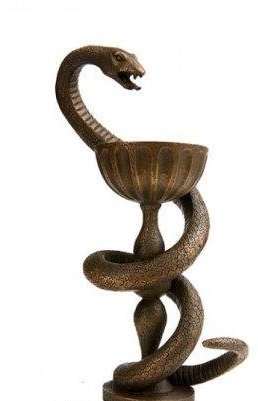“Phyto-estrogen interaction with estrogen receptors in human breast cancer cells,” J. (2002) Effect of soy phytoestrogens on hot flashes in postmenopausal women with breast cancer: a randomized, controlled clinical trial. Case-control study of phyto-oestrogens and breast cancer. Concentrated phytoestrogen supplements appear to have oestrogenic actions in the breast and may interfere with the therapeutic use of tamoxifen. Growing evidence indicates phytoestrogens may reduce the risk of certain cancers, Hormone dependent cancers such as breast and prostate are most affected. In addition, phyto-estrogens are alleged to have a cardioprotective effect and protect against breast cancer based on epidemiological data.
You will be shocked to learn that phyto-estrogen compounds found in soy may actually increase the risk of breast cancer. In sum, phytoestrogens interact with the estrogen receptors of human breast cancer cells in culture and, therefore, may affect estrogen-mediated events in these cells. That phytoestrogens prevent breast cancer also cannot be substantiated. Several papers have reviewed the potential roles of phytoestrogens in preventing breast, colon, and prostate cancer. Observational studies of countries in which dietary phytoestrogen intake is high have very low incidences of breast cancer. Incidentally, Japanese women have one fifth the risk of breast cancer as do their Western counterparts.” Another phyto-estrogen with great potential is black cohosh. The amount of phytoestrogen or estrogen available to the body will determine the final size of the breast. Epidemiological data suggest that phytoestrogens have a preventive effect against various estrogen-related diseases/symptoms such as breast cancer, menopausal symptoms, cardiovascular diseases, and osteoporosis. Our case control study investigated the role of phyto-oestrogens in human breast cancer.
We considered dietary soy oil content and soy derived phyto-estrogen, genistein, as potential modifying agents for C3H/HeJ mouse AA. Soy sauce and soy oil are not good sources of phytoestrogens. Specifically, you’ll find concentrations of phytoestrogens in foods that contain soy, such as soy milk, tofu, tempeh and soy flour and flax seed. Americans consume phytoestrogens primarily in traditional soy foods, soymilk and isolated soy protein added during food processing or consumed as a beverage. The clinical relevance of the placebo effect and the small additional effect of soy phytoestrogens must be evaluated by each woman individually.
On phytoestrogens, they comment: “Large amounts of phytoestrogens such as isoflavones can be ingested daily by humans, especially in a vegetarian diet. Studies like this are important in understanding why simplistic arguments about the quantity of phytoestrogens in the diet are misleading. The present study tests the hypothesis that administration of a phytoestrogen-rich diet enhances motor and cognitive performance in young and aged mice. Long-Evans rats (males and females) received a life-long exposure to a high-phytoestrogen containing diet (Phyto-600, from conception to adulthood). Short-term effects of phytoestrogen-rich diet on postmenopausal women.
Add pythoestrogens gradually to the daily diet, increasing the foods containing phytoestrogen to 30 to 50 mg per day. Ginsburg and Prelevic, a reduced prevalence of hot flashes in Asiatic populations has been attributed to women having a phyto-estrogen-rich diet. “These results show that women who are at risk for osteoporosis may directly benefit from eating a phytoestrogen-rich diet. “These results show that women who are at risk for osteoporosis may directly benefit from eating a phytoestrogen-rich diet. The consumption of a phytoestrogen-rich diet has been linked to reduced rates of heart disease and cancer.
However, when phytochemicals are not part of the diet, undesirable estrogen metabolites (bad estrogens) increase, and allow oxidation to damage DNA and promote cancer. They also consume a lower fat, higher fiber diet, with a large intake of phytoestrogens. But there are no reports of adverse effects in populations, such as the Japanese and Chinese, whose traditional diet includes phytoestrogens. This is usually attributed to the fact that the Japanese diet is richer in phyto-estrogen containing foods, i.e., plant based estrogens. But to recommend a phytoestrogenic diet for all men because it statistically lowers the occurrence of prostate cancer is going one step to far.
Pueraria Mirifica capsule Pueragold THAI FDA. G. 10/2003 (E)
Pueragold is a premuim grade Thai herbal product derived mainly from the White Kwao Krua (Pueraria Mirifica) which contains. Phytoestrogen (Natural Plant Estrogen). This all-natural herbal formula stimulates and rebalances older women and men hormones level.
Pueraria Mirifica CAPSULE Pueragold THAI FDA. G. 10/2003 (E)
ALL Natural Dietary Supplement
High Phytoestrogens (especially isoflavones):
Reduces Menopausal/Post-Menopausal symptoms
Increases sensitivity and vitality
Enhances physical and mental ability
Darken white hair & increases hair growth
Alleviates sleep disorder & improves eyesight
Enhances Breast and Skin Appearance
Supports Healthy Prostate Function
Supports Healthy Bone Structure
Ingredients: Pueraria Mirifica and other herbs
Packaging: 60 capsules per box
Recommended Dosage:
Men/Post-Menopausal Women: Take 1 capsule after breakfast and dinner everyday
Precautions: If should not be used in pregnant women,nursing cervix mothers, or women diagnosed with tumors in estrogen-sensitive organs, e.g., ovary, uterus and breast.
http://www.phuketherb.com/phytoestrogen-natural-plant-estrogen.html

